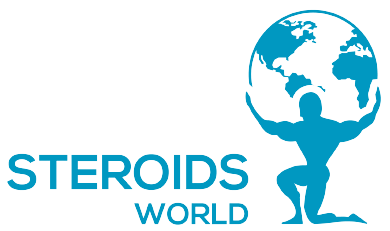Clomid:
Different types of medications or steroids are used by people with low testosterone levels or medical disorders including hypogonadism and infertility to restore testosterone levels to normal. They frequently purchase Clomid separately from other medicines for this purpose. This kind of medication is used by both males and females to treat infertility problems. It is mostly a medication created or intended for use by females who wish to become pregnant. But for a variety of reasons, males also utilise this medication off-label. By using this medication, a female’s hormone levels are altered, which causes ovulation and ultimately results in conception. Clomid, which is also marketed under the name Serophene, is a member of the class of drugs known as ovulatory stimulants.
What are Clomid’s uses?
- Because it offers the following benefits, Clomid UK is used by both men and women.
- Its primary use and advantage are to address both male and female infertility problems.
- Females who are unable to become pregnant naturally use this medication.
- This medication is frequently used by females to treat PCOS or polycystic ovarian syndrome.
- With the use of Clomid, other kinds of ovulatory dysfunction can also be managed.
- Men can use Clomid to boost their testosterone levels and get pregnant.
- Men can effectively increase their sperm count by using this medication.
The risks of using Clomid:
There are a variety of risks and hazards associated with using Clomid UK. The following are some of its frequent risks:
- Women who take Clomid report having larger ovaries.
- Swollen ovaries are another side effect of Clomid in females.
- Another danger or side effect of taking Clomid is a pain in the ovaries.
- By using this medication, the abdomen may also enlarge.
- Some persons who use Clomid or clomiphene also experience breathing difficulties.
- Another negative effect mentioned by the drug’s users has decreased urination.
- Flushing and visional haze.
- By using Clomid, women may also experience breast soreness.
Who should not take Clomid?
Purchasing Clomid in the UK is not suggested under the following circumstances:
- Women who have already given birth are unable to utilise Clomid.
- It is recommended that women who are nursing use this medication with caution and consult their doctor before doing so.
- It should not be used by those who are extremely sensitive to clomiphene or Clomid.
- When using Clomid for ovarian cysts, women may have negative effects.
- This medication can make living conditions worse. Additionally, it is advised against taking Clomid if a person has a history of liver disease.
- Because Clomid is a hormonal treatment and can exacerbate several cancer types, it is advised against using this medication if you have cancer.
- Any usage of Clomid should be avoided in the event of any unexpected menstrual bleeding.
Does Clomid work for men:
The Food and Drug Administration has not given the ovulatory stimulant Clomid or clomiphene approval for usage in males. To address disorders like hypogonadism, this medication is nonetheless used off-label by many male bodybuilders and men in general. This medication can be used to treat several male infertility disorders. When it affects males slowly, as it would otherwise, puberty can be effectively treated.
Modalities of action:
Consuming Clomid in men prevents the pituitary gland from connecting with oestrogen. Consequently, the levels of luteinizing hormone (LH) and follicle-stimulating hormone (FSH) rise. This ultimately results in higher amounts of testosterone in men. Clomid alternatives include:
Due to Clomid’s lack of FDA approval, some opt to utilise or purchase alternative ovulatory stimulants or infertility medications instead. The fact that Clomid has a lot of negative effects in individuals who use it often or for a lengthy period is another reason why many choose other medications over Clomid. To restore normal testosterone levels and treat infertility, many choose to utilise alternative steroids that can be taken in place of Clomid. There are a lot of natural approaches to normalise or enhance testosterone levels aside from taking medications or steroids. The following are some Clomid substitutes that can improve testosterone levels and sperm production.
1. Femara
Male testosterone levels can be restored by administering letrozole, another name for Femara, at modest dosages.
2. Arimidex
Arimidex is a different drug that works similarly to Clomid. Men take the off-label medication Arimidex, a form of anti-estrogen, to treat infertility.
3. HCG
Human chorionic gonadotropin, often known as HCG, is a kind of hormone that can be successfully used as a medication to boost testosterone levels and stimulate sperm production in males.
4. Vitamin D
Utilizing vitamin D supplements is another popular and secure method of bringing testosterone levels back to normal. These supplements are not only affordable, but they also have no negative side effects and are simple to use without endangering the liver.
5. Human Menopausal Gonadotropin
Doctors will suggest which human menopausal gonadotropin should be combined with HCG if the HCG hormone does not raise the sperm count in males. These shots ought to be administered for at least a year.
6. Zinc
Supplemental zinc is crucial for sperm motility and ultimately helps men reproduce more successfully. Additionally, these supplements tend to increase men’s free testosterone levels.
7. Coq10
Another successful method for increasing sperm motility in infertile men is CoQ10, also known as coenzyme Q10. For good effects, it is advised to utilise this enzyme for at least three months.
8. Intrauterine Insemination
Another method for treating male infertility that helps to increase the quality of sperm in infertile men is intrauterine insemination.


















